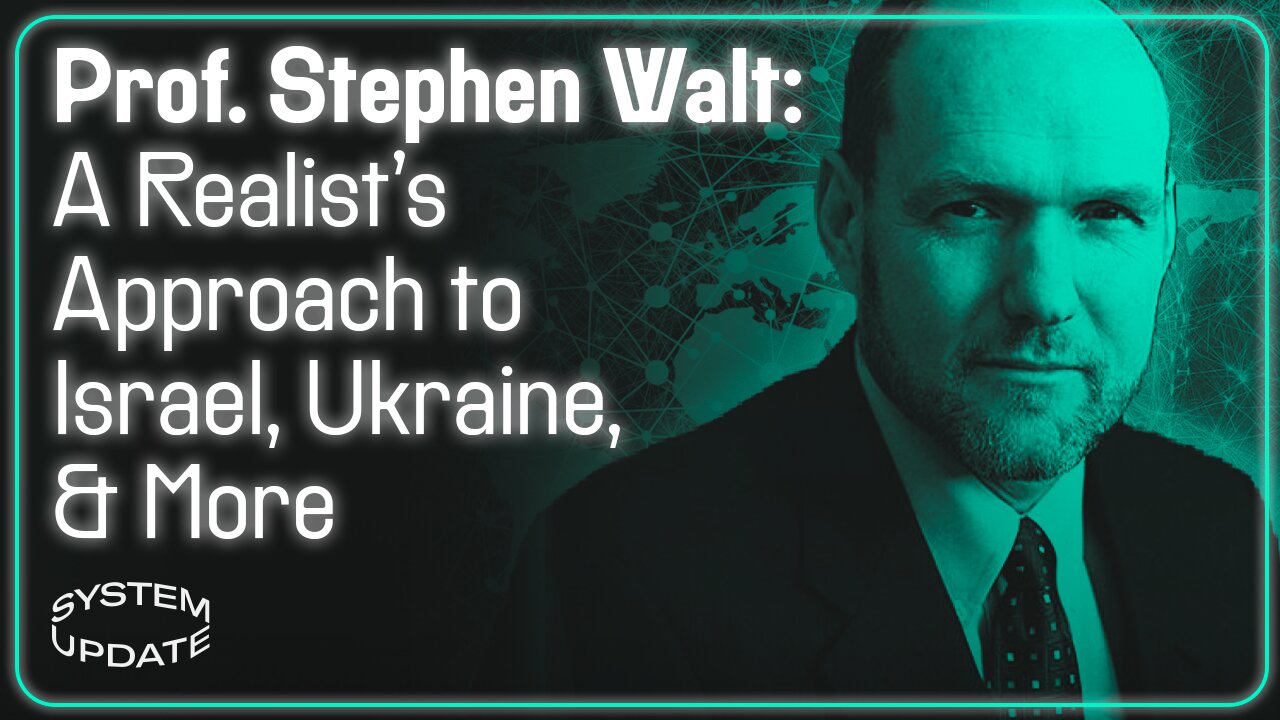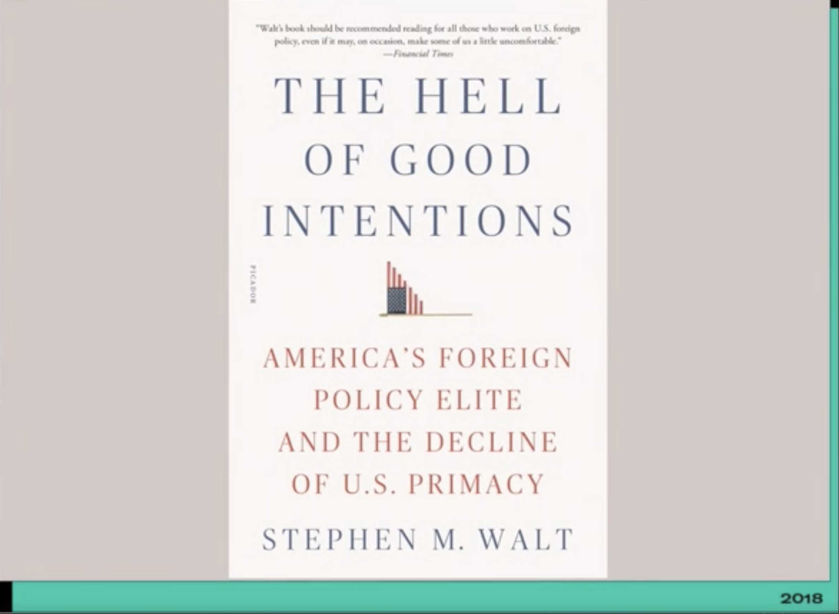Watch the full episode here:

Good evening. It's Friday, October 13.
Tonight: Professor Stephen Walt is a professor of International Relations at the Harvard Kennedy School of Government. He has long been one of the most independent-minded and interesting voices on foreign policy in American academia. In 2007, he teamed with University of Chicago professor, John Mearsheimer, who was recently on our show for one of our most watched episodes, to write the extremely controversial book at the time, “The Israel Lobby,” which documented the array of powerful lobbying groups that dominate Washington, groups like Planned Parenthood, the NRA, corporate lobbies and lobbies for the military-industrial complex. The duo described how the Israel lobby devoted to ensuring bipartisan support for Israel and its various struggles and wars has become one of Washington's most successful and effective lobbies.
Like Mearsheimer, Professor Walt is regarded as a leading voice of the so-called ‘realist school’ of foreign policy and international relations. Since 9/11, this school of thought has typically found expression in opposing the numerous American wars, regime-change operations, and interventions, arguing that the U.S. fights far too many wars and far too easily resorts to the military option – in places like Iraq, Syria, Libya, Afghanistan and now in Ukraine -- and that the U.S. should use military force only when its national security and homeland are directly threatened. That is a view that happens to be quite similar to the foreign policy critiques expressed by Donald Trump during the 2016 campaign when he railed against the Bush-Cheney foreign policy doctrine, against neoconservatives, and against liberal interventionists in the Democratic Party.
The title of the last book that Walt wrote, published in 2018, provides a helpful summary of this worldview:

That book is a scathing critique of U.S. bipartisan foreign policy that dominated the Clinton, Bush, and Obama administrations. In it, he argues that the failures of that interventionist happy foreign policy are what contributed to Donald Trump's victory in the 2016 election.
We had originally planned to have Professor Walton focus primarily on the U.S. and our role in the war in Ukraine, but obviously, the events of the last six days changed that focus quite a bit. We spent a significant chunk of time at the start discussing with him the vast and serious implications of the Hamas attack on Israel, the very aggressive Israeli response and the key role now played by the Biden administration in providing the Israelis with military and financial support for its military response in Gaza. We also discussed the criticisms of his university, Harvard, for failing to condemn Hamas aggressively enough, as well as the attempt led by billionaire hedge fund managers to compile a list of Harvard students who recently signed pro-Palestinian statements and to block them from being hired as a result. We also spoke with him about what the implications would be if the U.S. did end up bombing or otherwise attacking Iran, as numerous politicians are urging.
We discussed the ongoing war in Ukraine and the motives and goals of the U.S. in fueling it talked about the expansion of the China-led BRICS alliance and the question of whether the world really is moving from a U.S.-dominated one into a world that is multipolar. What the proper understanding Americans should have of China, whether they're an enemy, a competitor, or a country with whom the U.S. can and sometimes should attempt to partner; and, finally, whether the entire Internet anti-interventionism that helped Donald Trump to victory is now eroding in light of overwhelming bipartisan support for the U.S. role in the war in Ukraine and now this new war in Israel and Gaza.
Back in 2007, professors Walt and Mearsheimer were aggressively vilified by the bipartisan foreign policy establishment, even standing accused widely of being anti-Semitic for writing about the Israel lobby and examining the bipartisan support for Israel in Washington. They did survive those quite vicious attacks on their character and are now much more identified with their very studied and informed opposition to the American obsession with wars, interventions, and regime change operations. I found this discussion with Professor Walt every bit as enlightening and provocative as I expected it to be, and I trust that you will see it similarly.
For now, welcome to a new episode of System Update, starting right now.






















